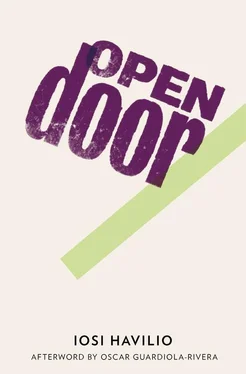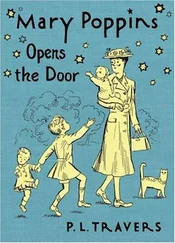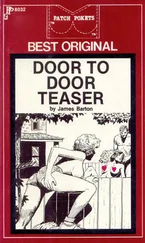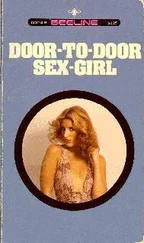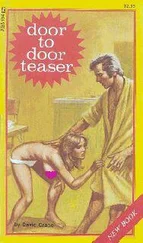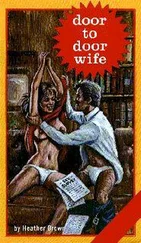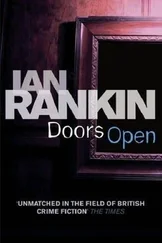Iosi Havilio - Open Door
Здесь есть возможность читать онлайн «Iosi Havilio - Open Door» весь текст электронной книги совершенно бесплатно (целиком полную версию без сокращений). В некоторых случаях можно слушать аудио, скачать через торрент в формате fb2 и присутствует краткое содержание. Год выпуска: 2013, Издательство: And Other Stories, Жанр: Современная проза, на английском языке. Описание произведения, (предисловие) а так же отзывы посетителей доступны на портале библиотеки ЛибКат.
- Название:Open Door
- Автор:
- Издательство:And Other Stories
- Жанр:
- Год:2013
- ISBN:нет данных
- Рейтинг книги:4 / 5. Голосов: 1
-
Избранное:Добавить в избранное
- Отзывы:
-
Ваша оценка:
- 80
- 1
- 2
- 3
- 4
- 5
Open Door: краткое содержание, описание и аннотация
Предлагаем к чтению аннотацию, описание, краткое содержание или предисловие (зависит от того, что написал сам автор книги «Open Door»). Если вы не нашли необходимую информацию о книге — напишите в комментариях, мы постараемся отыскать её.
Iosi Havilio
Open Door
Open Door — читать онлайн бесплатно полную книгу (весь текст) целиком
Ниже представлен текст книги, разбитый по страницам. Система сохранения места последней прочитанной страницы, позволяет с удобством читать онлайн бесплатно книгу «Open Door», без необходимости каждый раз заново искать на чём Вы остановились. Поставьте закладку, и сможете в любой момент перейти на страницу, на которой закончили чтение.
Интервал:
Закладка:
Right at that moment, as I was beginning to get bored of the empty village streets, a different, complex sound surprises me, one that I wasn’t expecting to hear. There are several voices, all talking at once, rapidly, on top of one another, in rather high-pitched tones. Voices that sound very near but which don’t show their faces. There isn’t a soul to either side, no one behind, no one up ahead, and yet they’re so close. I walk on a couple of metres, focused on the murmuring, which is growing in intensity. I even manage to trap a few words in the air, like ‘evening’, ‘wearing’, ‘damn’, ‘Friday’, and I’m the closest thing to a lunatic who hears voices. The madness doesn’t last long. I don’t even have time to react: in less than a second I become a mess of nerves. Some four or five girls, all in the same school uniform, white blouse and kilt, come out of the garage of the house on the corner, five metres from where I’m standing. And the first thing I see, as if there were nothing else, before I see the uniforms, the garage, is Eloísa, so wrapped up in the conversation that she doesn’t register I’m here, so close, by pure coincidence. It’s best she doesn’t see me, I’d better turn round, without a sound. Yes, that’s the best way.
But anxiety gets the better of me and I follow a narrow dirt alley so that I can go round and meet her at the crossroads. I have to be surprised, it has to be natural, as if by chance.
There’s no one in the other street. Not a voice or a sound to be heard. The house from which Eloísa and the other girls came has an entrance on this street too, at the end. I don’t understand. I take a new street, then another, and I’m lost.
I turn on my heel and find myself on the first street again. From there I go out onto the main avenue, I’m three blocks from the shopping centre. I bend down to tie my shoelace and without warning, the girls appear. Eloísa’s at the front, I smile at her, but she keeps going. She completely ignores me. I catch a flying sentence suspended in the air as they move away.
‘She’s such a maggot,’ says one them who isn’t Eloísa. I wonder who they’re talking about. I stare after the little group, which forms a kind of arrow with Eloísa at the tip. I don’t know whether to follow them, I don’t know whether to join in, I don’t know what to do. At the corner, before turning, Eloísa looks back and waves her hand, laughing from a distance. I feel stupid.
I return to the shopping centre without lifting my eyes from the ground, like a fool, feeling put out. Jaime is waiting for me at the foot of the pick-up, the keys in his hand.
‘You left the keys in the ignition,’ he says and adds with an unbearable smile: ‘It’s not a good idea.’
I don’t answer, grabbing the keys from him and getting into the truck. I switch on the radio. I’m beginning to tire of his moroseness, his persistent nothingness. Jaime looks up at me, his hands now busy with tobacco and rolling papers. He looks at me, intrigued, with the subtle estrangement that used to make him that bit different. He watches me with the expression of an old man who’s seen it all before.
The next day, by the bare fig tree, Eloísa strokes my hair:
‘See over there?’
‘Where?’
‘There, between the shop and the mill.’
‘What is it?’
‘That ranch, see? Some gypsies are occupying it.’
‘And who does it belong to?’
‘Nobody. They say that they’re Romanians. I don’t know how they ended up here.’
‘Who can have tipped them off about it?’ I say, and the question floats in the air.
TWENTY
Jaime brought home a television. He must see that I’m bored. He spent all afternoon trying to install the antenna. All we see is roughly equally spaced lines on every channel. The only thing that is occasionally clear is the sound. We hear parts of dialogues, distorted adverts, distant presenters. He eventually gave in, returned the set to its box and put it in the stable, rather embarrassed.
On Tuesday morning I returned to the library to pick up my translation. I opened the door but Brenda wasn’t in her usual place. She couldn’t have been far away, however, because there were a couple of books open on the desk, in use: a Spanish-Latin dictionary, a volume of an encyclopaedia and a writing pad with fresh notes on it. I went into the reading room, but there was no one there either. I said hello twice and even called her name.
‘Brenda,’ I threw the word into the air, in no particular direction, but Brenda didn’t appear.
Now that I looked closely, in the far corner of the room, in a straight line with the desk, there was a small door slightly ajar, camouflaged against the wall. I knocked gently and the door opened by itself. It led to a back patio covered with a dry vine. An iron table with four matching chairs stood in the centre of the patio. Further on there were two more doors. I went forward a few metres. One of the doors led to a spacious kitchen, the other to a bedroom with two identical beds, perfectly made, each watched over by a crucifix on the headboard. Without meaning to, surreptitiously, I had entered Brenda’s house, I had looked into its privacy. Curiosity grabbed me: Which came first, the house or the library? What had been turned into what?
As I wondered about that, standing in the middle of the patio, I almost fell when a sharp cry returned me to reality in the cruellest way. I leant on the back of one of the chairs, which I now realised wasn’t made of iron like the others but was the wheelchair that Brenda used to get about. I looked all around me until I saw a fourth door, made of tin, halfway between the house and the library.
‘Brenda, are you there?’ I said, this time almost whispering, with a certain amount of fear.
The door opened in slow motion, creaking every millimetre of the way until finally I could see Brenda sitting on the toilet with her knickers down, her face covered in drops of sweat or tears, I don’t know which. But what caught my eye the most were her ears, the lobes slashed with fine cuts, recently made.
With gestures, Brenda asked me to bring over her chair and help her to change seats. Of course I didn’t inquire about any of the strange things I’d just observed, nor did it occur to me to question the unusual distance between her wheelchair and the bathroom door. Could someone have played a trick on her, or had the chair simply rolled towards the others?
When Brenda had regained her composure and taken her place behind the desk once more, all I managed to ask her was whether she was all right. In fact, I was about to leave without mentioning the translation, it didn’t seem the best time for it. But my silence was seemingly eloquent because Brenda immediately opened a drawer, handed me the book by Huret and tore five or six leaves, neatly handwritten in black pencil, from the pad.
‘It’s the best I could do,’ she said in a slightly hoarse voice. I left without saying anything, full of doubts.
On the way back to the farm, my thoughts occupied with Brenda’s wounded ears, I took a rest and skimmed the first few paragraphs of the translation:
A model establishment, of which very few still exist in Europe, operates in Luján, one hour away from Buenos Aires, in the middle of the flourishing countryside. Founded by the State, on the whim of an extraordinary man, blessed with a pleasant and smiling vitality, to whom it is impossible to deny anything, this work is wholly prosperous and produces surprising results.
Dr Cabred is the driving force behind this movement. President of the national hospitals commission, he promotes, with his vigorous activity and contagious enthusiasm, the creation of modern colonies for the insane throughout the Republic. He knows France and Paris perfectly, as he does the hospitals in which he studied under the guidance of our masters. But the models for his establishment he took from Scotland and Germany, where the ‘open door’ system has been successfully practised for many years, as it has in Russia and the United States. He was particularly inspired, in respect of the plans and details of the facility, by the Alt-Scherbitz asylum, near Dresden in Saxony. The open door method is not yet widely applied in France, where progress is slow. Dr Cabred is extremely passionate. He claims that lunatics are made furious by precisely the coercion that is exercised on their liberty, the liberty to come and go, to move about.
Читать дальшеИнтервал:
Закладка:
Похожие книги на «Open Door»
Представляем Вашему вниманию похожие книги на «Open Door» списком для выбора. Мы отобрали схожую по названию и смыслу литературу в надежде предоставить читателям больше вариантов отыскать новые, интересные, ещё непрочитанные произведения.
Обсуждение, отзывы о книге «Open Door» и просто собственные мнения читателей. Оставьте ваши комментарии, напишите, что Вы думаете о произведении, его смысле или главных героях. Укажите что конкретно понравилось, а что нет, и почему Вы так считаете.
